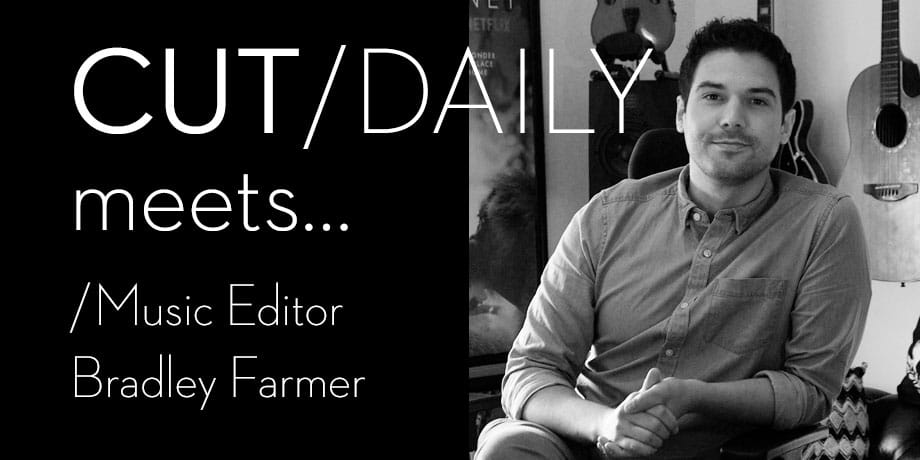#405 - Cut/daily Meets... Music Editor Bradley Farmer

Bradley Farmer is a Music Editor and Composer whose credits include Baby Driver, Last Night in Soho, The Swimmers, Over The Moon, Thelma The Unicorn and many of the David Attenborough Our Planet series. He's also been nominated twice for his work by the MPSE.
It's not often I get to discover just exactly what a music editor does, and how best to collaborate with them as a 'picture editor', so Bradley kindly answered some bonus questions.
You can check out more of Bradley's work and connect with him here.
My biggest takeaway from everything Bradley had to share?
Don't forget why you fell in love with this business in the first place.
It can be so easy when working all hours not to take time for the thing that made you fall in love with what you do. We are really lucky to be able to work and make silly noises for films!
— Bradley Farmer, Music Editor & Composer
For editors who have never worked with a music editor, what's the best way to collaborate?
A music editor's role can vary widely. Sometimes, a director is very keen on music and has sequences in mind that will be shot to a chosen song. Pre-shoot, I've been asked to provide edits of a rough length for a scene so that it can be shot with actions happening on cue - sort of the reverse of scoring the scene - the actors are acting rhythmically, almost dancing, to a pre-written song.
Other times I've worked with a director/editorial duo who will spend weeks cutting with specifically honed and interesting musical ideas. Often, they find a piece of music that feels like it does everything they want for a scene but doesn't quite have the right tone or emotion.
A music editor can come in and collaborate to either supplement those pieces in order to tweak them closer to the story and tone, or to find other pieces of music using the previous ones as a map.
Sometimes, the director/editor are still working on the film's musical language. My role then is to provide options for scenes to help us move forward with the edit and have something unified until we have a composer to compose the score.
The hope is this can act as a roadmap for the instrumental language of the film and the emotions of specific scenes. The ideal 'temp music' would be something invisible which can help us through the cut, before the composer can elevate scenes with original music.
What are the unique ways Music Editors improve a film?
Director Side – Whether it's temp music or a song, music editors help story beats land along with emotional beats in the music, while we work through the film edit.
There is a big difference between music which is slapped onto a scene to provide levity or tension and something which twists and turns with the characters and story. Something which subtly changes with a character's reactions can pull audiences in and help them empathise with the situation.
Composer Side – Music editors act as a liaison between composers and editorial. They often temporarily dub demos of the score so the composer and director can discuss the music in situ, or make it fit an adjusted picture.
During the recording process a music editor ensures we have everything necessary to accommodate the final picture at the dub stage so it provides the emotional payoff the director and composer have designed.
Final Mix Side – The final job is liaising with the sound dept. All of us will have worked through temp dubs before the music records and by then the composer and music editor will have discussed with the sound department how best to present the music for the greatest emotional effect in the story.
The music editor is present at the dub to make sure the composer and director's vision is made possible in the film.
What is one of the hardest parts of music editing that others don't seem to understand?
I think the trickiest skill in music editing is to ensure that the music is best represented in the edit. It sounds like a broad statement, but the score/source needs to be both 100% musical, so that it doesn't awkwardly pull people out of the story, while 100% servicing the picture to actually augment the drama.
It's like having to think in two types of rhythm at once; a musical rhythm and a dramatic real-time rhythm. The trick is making them seem like they are one and the same, so the composition bolsters what we see onscreen, but also stands up as a piece of music in its own right.
